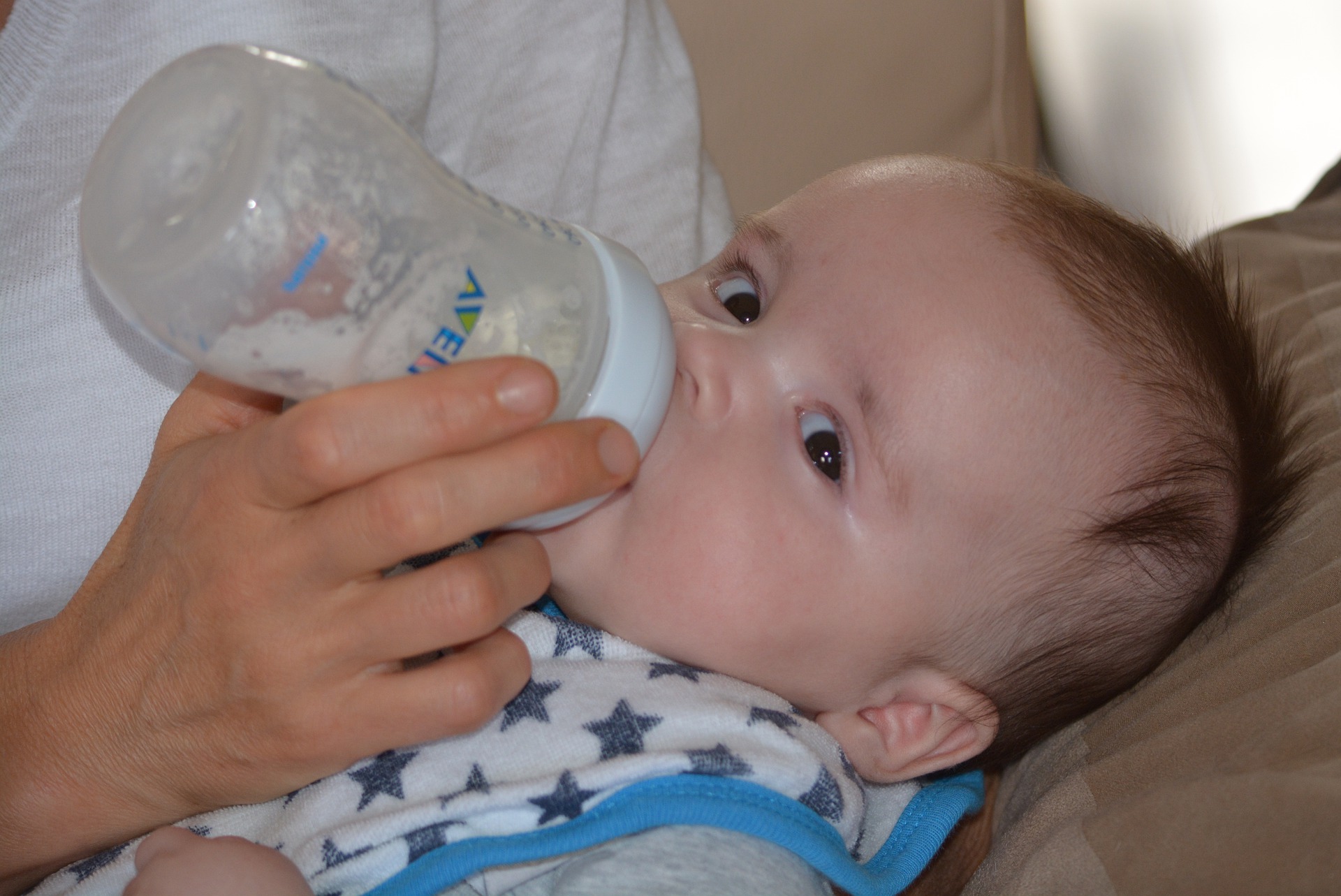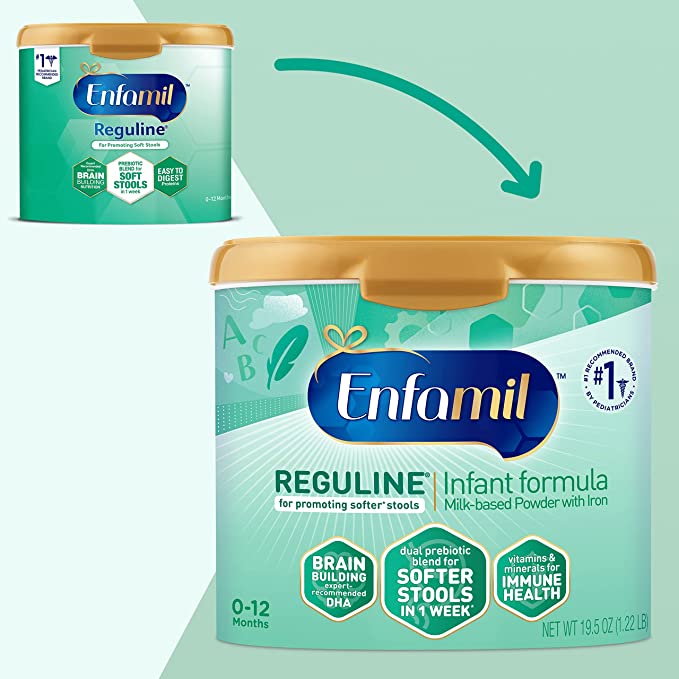If you are a new parent, you may be wondering about sensitive baby formula. In this blog post, we will answer all of your questions about sensitive baby formula. We will discuss what it is, how to choose the right one for your child and the benefits of using sensitive baby formula. We hope that this information will help you make the best choices for your child’s health!
What Is Sensitive Baby Formula?
There are a lot of different types of baby formulas on the market these days. With so many choices, it can be hard to know which one is right for your baby. If your baby has sensitivities or allergies, you may want to consider sensitive baby formula.
Sensitive baby formula is designed to be easier on your baby’s digestive system. It is made with fewer ingredients and is more hypoallergenic than other formulas. The formulas are made with easy-to-digest proteins and other nutrients that are gentle on the stomach. It is designed for infants who experience gas, bloating, and other digestive issues. In addition, sensitive baby formulas often have a lower lactose content than traditional formulas. This can be beneficial for babies who are lactose intolerant or have difficulty digesting lactose.

While the sensitive baby formula is not suitable for all infants, it can be a helpful option for babies who have trouble digesting cow’s milk-based formulas. Parents should talk to their pediatrician if they are concerned about their baby’s digestion. Pediatricians can help parents choose the best formula for their infant’s needs.
What Are The Benefits Of Using Sensitive Baby Formula?
In recent years, sensitive baby formulas have become increasingly popular as they are designed to be closer to breast milk and are easier on a baby’s digestive system. Here are some benefits of using the sensitive baby formula:
1. Sensitive baby formulas contain fewer allergens than standard formulas, making them less likely to cause digestive issues or skin rashes.
2. The ingredients in sensitive formulas are more easily absorbed by a baby’s developing digestive system, resulting in fewer tummy troubles.
3. These formulas provide essential nutrients that support a baby’s growth and development, including brain and eye health.
4. Many sensitive formulas are now made with organic ingredients, which are free from harmful chemicals and pesticides.
5. Because they are easier on a baby’s tummy, parents can feel confident that their little one is getting the nutrition they need without any fuss.
How To Tell If Your Baby Requires A Switch To Sensitive Formula?

Indications that your infant may need a sensitive formula are listed below.
Excessive Spit Up
Since their digestive systems are not fully matured, all infants vomit. There is usually not much to worry about as long as your baby is gradually gaining weight (approximately 6 ounces a week) and wetting nappies at least once every 6 hours. Spitting up more than two tablespoons of formula at each meal, however, may indicate an intolerance to the formula.
Sluggish Rate Of Weight Gain
Monitoring a baby’s growth and several diaper changes might provide important information about their health. These signs may be present when babies are gaining weight healthily:
- In the first two weeks of life, babies lose water weight, but by the 10th to 14th day, they have gained it all back.
- They average a one-ounce daily increase from birth to three months of age.
- A baby will gain about 67 ounces every day until they are 6 months old.
Make an appointment with your baby’s pediatrician if he or she isn’t gaining weight normally.
Extra Fussiness
Babies often experience some fussiness, particularly at night. However, if your baby is irritable all day, notably after a feeding, consult with your pediatrician. An infant who exhibits such persistent distress may be reacting poorly to the formula you are feeding him.
Your infant’s fussiness may be an indication that they are suffering discomfort from gas and bloating due to lactose intolerance. After you’ve fed your kid, it could take anything from a few moments to a couple of hours for these symptoms to show up.
Severe Constipation
Babies who are formula-fed typically have one bowel movement each day, although missing two days is normal and not cause for alarm. However, if your kid is straining, generating hard, tiny stools, or experiencing terrible stomach pains, they’re probably constipated.
A diet modification could bring some help. Babies who consume a formula that does not contain palm oil may experience less diarrhea. If they’re experiencing constipation, you shouldn’t simply switch to a low-iron formula. Baby formulae include an adequate quantity of iron for infants; it should not create digestive issues.
Symptoms Of Allergies
Within the first few months of life, 2%-3% of infants are diagnosed with milk allergies (though most outgrow it). They may exhibit symptoms right after a meal or up to ten days afterward. These symptoms include:
- Skin rashes or Eczema
- Vomiting or gagging
- Loose stools (which may contain blood)
- Fussiness
- Refusing bottles
- Swelling
- Wheezing
- Anaphylactic shock
- Hives
These are the signs of an allergic response in a newborn; if you notice any of them, you should call your pediatrician immediately.
How Do You Choose The Right One For Your Baby?
When it comes to finding the right sensitive formula for your child, there are a few things to keep in mind. The first thing to do is consult with your pediatrician. They will be able to advise you on which brands they recommend and whether or not a sensitive formula is right for your child.
Once you have a list of potential formulas, it’s important to do your research. Read online reviews, talk to other parents, and get as much information as you can. It’s also a good idea to ask the staff at your local baby store for their recommendations.
Final Thoughts
As any parent knows, choosing the right formula for your baby is a sensitive decision. There are many factors to consider, including nutrition, price, and your baby’s individual needs whether they need them or not.
With so many options on the market, it can be difficult to know where to start. However, by doing your research and working with your child’s doctor, you can find the perfect formula for your little one. And when you find that perfect match, you’ll know it was all worth it.











